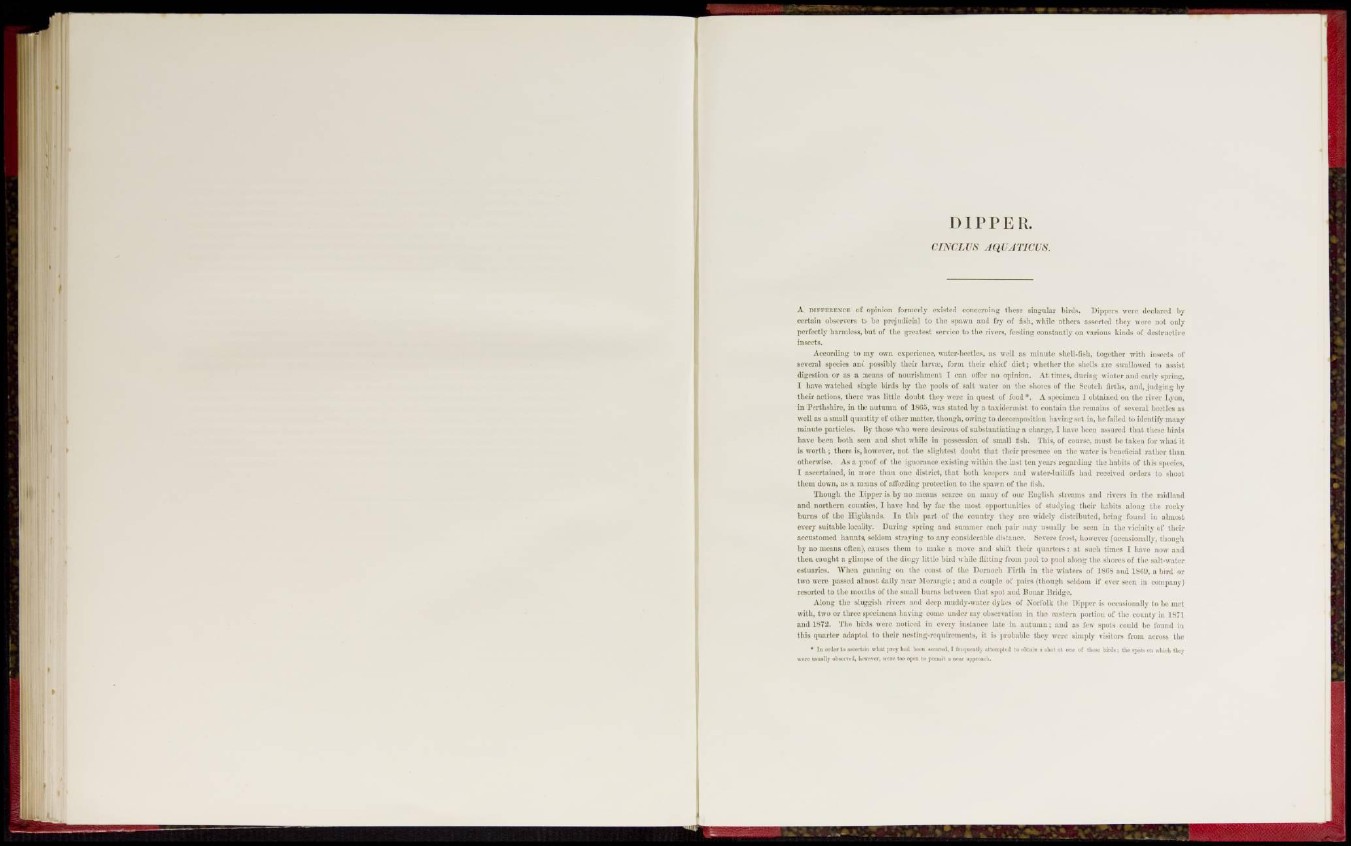
D I P P E I t.
CINCLVS AQJJATICUS.
: of opinion formerly existed concerning these singular birds. Dippers were declared by
cerlain observers to be prejudicial to the spawn and fry of lisli, while others asserted they were not only
perfectly harmless, hut of the greatest service to the rivers, feeding constantly on various kinds of destructive
insects.
According to ray own experience, Water-beetles, as well as minute shell-lish, together with insects of
several species and possibly their lame, form their chief diet; whether the shells are swallowed to assist
digestion or as a means of nourishment I can offer no opinion. At times, during winter and early spring,
I have watched single birds by the pools of salt water on the shores of the Scotch firths, and, fudging by
their nitir.us, there was little doubt they were in quest of food •. A su-Tamer. i obtained on the river Lyon,
in Perthshire, in the autumn of 186ft, was stated by a taxidermist to contain the remains of several beetles us
well as a small q'.iaotity of other matter, though, owing to decon.posit.on \\\ mg set 1», be failed to identify manv
minute particles. By those wuo wore desir ms of substantiating a charge, I have iceu as-..red tint t'le.c lards
have been both seen and shot while iu possession of small fish. This, of course, must be taken lor what it
is worth; there is, however, not the slight.si doubt that their presence on the water is beneficial rather than
otherwise. As a proof of the ignorance existing within the last ten years regarding the habits of this species,
I ascertained, iu mure than one district, that both keepers and » iler-bailill's had received orders to shoot
them down, as a menus of affording protection to the span it tif the lish.
Though the Dipper is by no means scarce on many of our English streams and rivers in the midland
and northern counties, I have had by far the most opportunities of studying their habits along the roc.kv
hurns of the Highlands. Iu this part of the country they are widely distributed, being found in almost
every suitable locality. During spring and summer each pair may usually he seen in the vicinity of their
accustomed haunts, seldom straying to any considerable distance. Severe frost, however (occasionally, though
by no means often), causes them to make a move and shift their quarters : at such times I have now and
then caught a glimpse of I he dingy lil tie bird « hile Hilling from pool to pool along the shores of the salt-water
estuaries. When gunning on the coast of the Dornoch Pirlh iu the winters of lsf>"S and lStiU, a bird or
two were passed almost daily near Morangie ; and a couple of pairs (though seldom if ever seen in company)
resorted to the mouths of the small burns between that spot and Bonnr Bridge.
Along the sluggish rivers and deep muddy-water dykes of Norfolk the Dipper is occasionally to be met
with, two or three specimens having come under my observation in the eastern portion of the county iu 1S71
and 1S72. The birds were notieed in every instance late iu autumn; and as few spots could ho found in
this quarter adapted to their nesting-requirements, it is probable they were simply visitors from across the